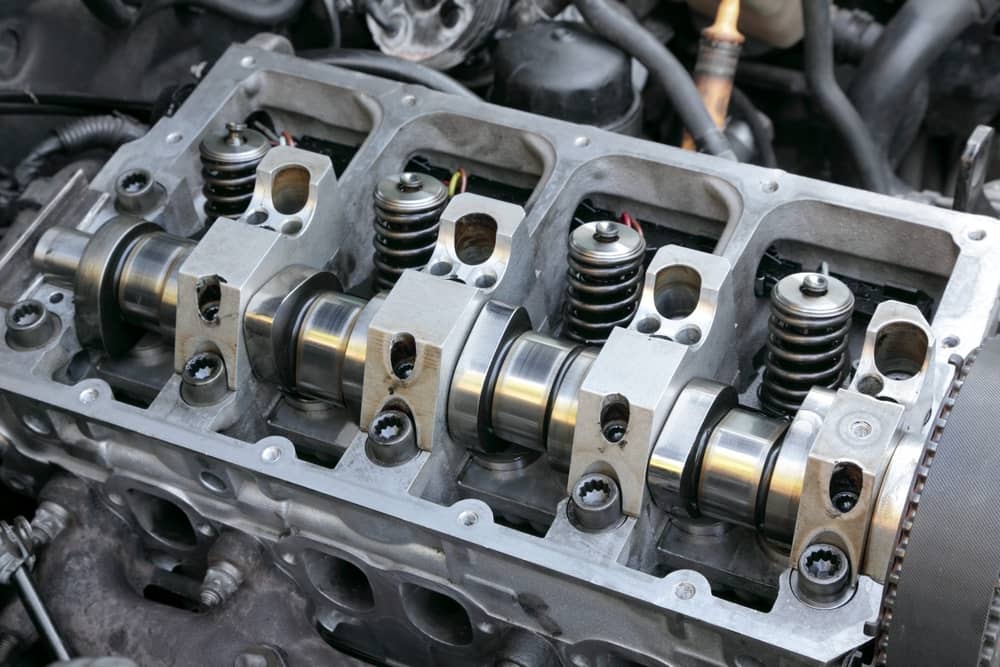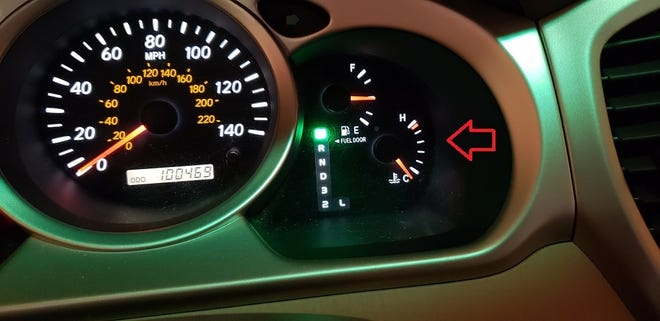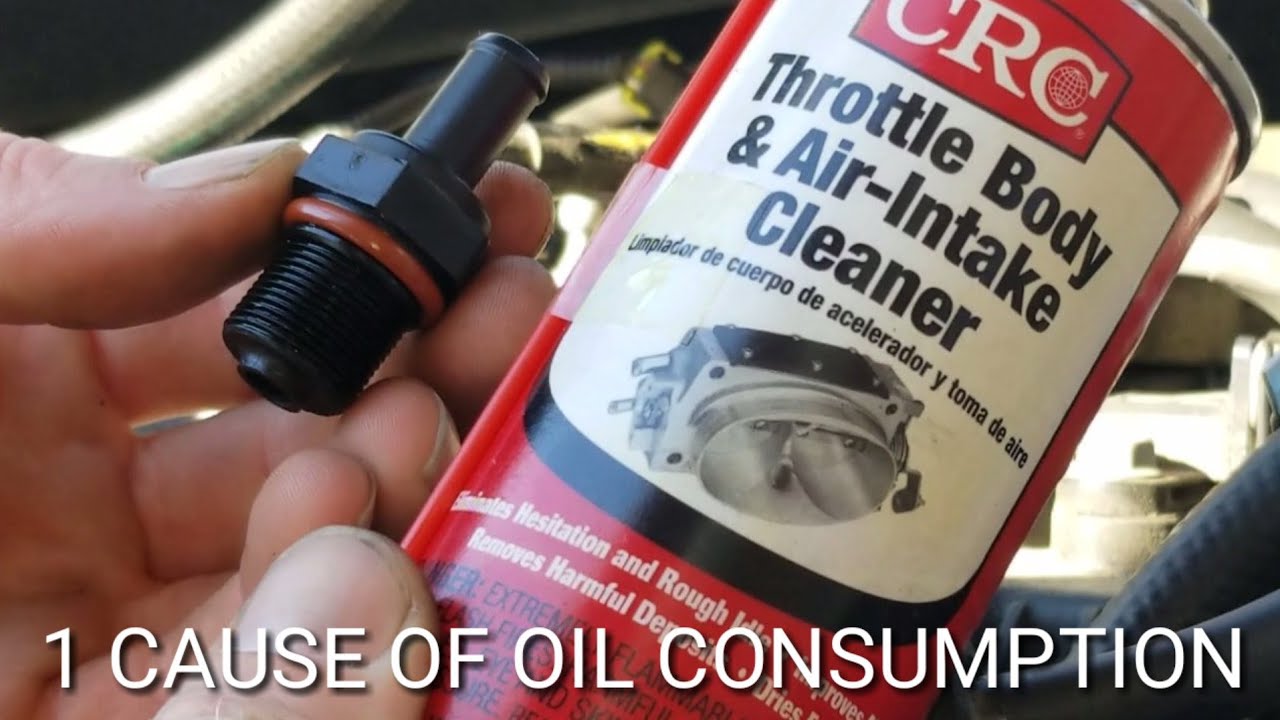Can a Bad Oil Pressure Sensor Cause Ticking
A bad oil pressure sensor cannot directly cause a ticking noise. Ticking is often associated with mechanical issues within the engine.
Understanding the role of an oil pressure sensor in vehicle maintenance is crucial for car owners. This sensor monitors the oil pressure in your engine, ensuring it operates within safe limits. A faulty sensor may give incorrect readings, leading to unnecessary alarms or, worse, a lack of warning when oil pressure is low.
Ensuring your engine is adequately lubricated prevents serious damage and maintains its longevity. When unusual noises such as ticking emerge from your engine, it typically suggests mechanical concerns, possibly related to valve train components or low oil levels, rather than a sensor malfunction. Car enthusiasts and professionals alike recognize the importance of diagnosing and addressing such engine noises promptly to avoid more significant and costly repairs down the line.

Credit: gobdp.com
Identifying Ticking Noises
Engines can make all sorts of noises, but a ticking sound can be especially troubling. Many vehicle owners wonder about the causes of this ticking and whether a bad oil pressure sensor could be the culprit. Identifying the source of the ticking noise is critical for the health of the car. Let’s explore the common origins of this sound and how the oil pressure sensor fits into the picture.
Common Sources Of Engine Ticking
Several factors can create a ticking noise in the engine bay:
- Valvetrain Components: Parts like lifters, pushrods, and rocker arms can tick if they’re worn or not lubricated well.
- Exhaust System: Leaks in the manifold can lead to ticking sounds, especially when the engine is cold.
- Detonation: This phenomenon occurs when fuel ignites prematurely, creating a ticking or knocking noise.
Symptoms Of A Bad Oil Pressure Sensor
A malfunctioning oil pressure sensor may cause different engine issues:
| Symptom | Description |
|---|---|
| Warning Light | The oil pressure warning light on the dash may stay lit. |
| Erratic Gauge | The oil pressure gauge may show sudden drops or spikes. |
| Engine Noise | Without accurate sensor data, poor lubrication may lead to ticking sounds. |
When a car’s engine begins to tick, it’s time for an immediate check-up. While a bad oil pressure sensor is one possibility, comprehensive diagnostics are vital. Quick action can prevent more severe engine damage. Always consult a professional mechanic for accurate diagnosis and repair.

Credit: shop.advanceautoparts.com
Oil Pressure Sensor Basics
The oil pressure sensor is a critical component in any vehicle. It’s a watchdog for the engine’s lifeblood – the oil. This tiny but mighty part reads the oil’s pressure. It sends messages to the car’s computer. When oil pressure drops, the sensor acts fast. It warns the driver with a dashboard light. Learning about this sensor is key to engine care.
Function Of The Oil Pressure Sensor
The oil pressure sensor keeps an eye on the oil pressure. When you turn on the engine, it starts working. Its job is to measure how hard the oil pushes against the engine’s parts. It’s like a doctor checking blood pressure. Good pressure means parts are safe. Low pressure is a sign of trouble.
Role In Engine Health Monitoring
Maintaining engine health is vital for a car’s lifespan. The oil pressure sensor is a guard for the engine. It checks the oil, making sure it’s doing its job. If the oil is low, or the pressure drops, the sensor acts. It lights up an alert on the dashboard. This alert is a call to action: Check the engine!
- Measures pressure
- Sends data to the car’s computer
- Triggers an alert if pressure is low
Understanding these basics helps car owners. It prompts them to take action. Immediate action can prevent further engine damage. Always remember: Regular checks are best.
Link Between Oil Pressure And Engine Ticking
The health of your car’s engine largely depends on proper lubrication. Any issues with oil pressure can quickly escalate into ticking noises, which are often a call for immediate attention. A ticking engine is not just annoying; it’s a red flag that shouldn’t be ignored. Let’s explore how this ticking is tied to oil pressure and what it means for your vehicle.
How Low Oil Pressure Affects The Engine
Low oil pressure can cause significant damage to your engine. The oil in your car serves as a lubricant and coolant for the engine components. When there isn’t enough pressure to circulate this oil, those moving parts start to rub against each other without the necessary lubrication. This friction often leads to that disturbing ticking sound. It’s the sound of your engine components wearing down prematurely and an indicator that your engine is not operating efficiently.
- Increased Engine Wear: Components rub together, leading to wear-and-tear.
- Overheating: Without proper lubrication, engine temperatures rise.
- Noise: Ticking or knocking noises emerge from strained engine parts.
Misreading Sensor Data And Potential Misdiagnoses
An inaccurate oil pressure sensor can send the wrong signals to your car’s computer system. This misinformation can lead to a diagnosis that misses the real issue. The sensor may indicate adequate oil pressure even when the level is critically low, or vice versa. Such a misreading can prevent you from addressing the low oil pressure that’s actually causing your engine to tick. It’s crucial to understand that a faulty sensor complicates the diagnosis.
| Correct Diagnosis | Sensor Error Leads To |
|---|---|
| Right oil pressure readings | False sense of security or unnecessary panic |
| Timely engine inspection and repair | Possible engine damage due to delayed service |
| Efficient engine performance | Reduced engine lifespan |
It is important to not just rely on sensor readings but also pay attention to your car’s behavior. Remember to regularly check your engine oil level and quality to ensure your vehicle runs smoothly.

Credit: eightify.app
Troubleshooting Ticking Sounds
Ticking noises from the engine bay can be unsettling. They hint at potential issues under the hood. One possible culprit? The oil pressure sensor. A faulty sensor may not directly cause a tick but can mislead you. It can indicate normal pressure while mechanical faults go unnoticed.
Steps To Diagnose Oil Pressure Issues
Begin by checking the oil level. Low oil can lead to ticking. Next, inspect the oil pressure reading. Compare it with the standard values for your vehicle. If the pressure is low, listen for a ticking noise. It could signal lack of lubrication in engine components.
- Check the oil level with the dipstick.
- note the oil pressure gauge reading.
- Listen for ticking noises in the engine bay.
Distinguishing Sensor Fault From Mechanical Fault
A bad sensor gives false data. However, a tick indicates an actual fault. To distinguish, use a mechanical oil pressure gauge. It helps verify the sensor’s accuracy. If the mechanical gauge shows correct pressure but ticking persists, look for mechanical issues such as worn out bearings or lifters.
- Connect a mechanical oil pressure gauge.
- Compare its reading to the sensor’s.
- Investigate further if discrepancies are found.
| Check | Sensor Reading | Mechanical Gauge Reading | Action |
|---|---|---|---|
| Initial | Varies | Standard | Replace sensor |
| Post-Replacement | Standard | Standard | Seek other causes |
Fixing Oil Pressure Sensor Problems
An oil pressure sensor monitors engine health by sending data to the car’s computer system. When this tiny but crucial component fails, it might lead to a ticking noise indicating low oil pressure. Addressing oil pressure sensor issues ensures your engine stays lubricated and runs smoothly.
Replacing A Faulty Oil Pressure Sensor
Detecting a faulty sensor is the first step. Look out for the oil pressure warning light or an erratic oil pressure gauge. Follow these steps:
- Turn off the engine and let it cool.
- Find the sensor, usually near the oil filter.
- Disconnect the battery to avoid electrical issues.
- Remove the sensor with an appropriate wrench.
- Install the new sensor and tighten it securely.
- Reconnect the battery and start the engine to test.
Your ticking noise should disappear if the sensor caused it.
Preventing Future Oil Pressure Complications
Maintenance is key to preventing future issues.
- Regularly check oil levels and quality.
- Change the oil and filter based on the manufacturer’s schedule.
- Use the correct type of oil for your car.
- Inspect sensors during regular service.
A well-maintained vehicle has fewer unexpected problems. Stay on top of oil maintenance to avoid pressure sensor issues.
Expert Insight
Understanding the symptoms of a faulty oil pressure sensor is crucial for car health. An expert perspective can shed light on whether such an issue can lead to engine ticking. Let’s delve into insights from seasoned automotive pros and explore some real-world cases to understand the connection between oil pressure sensors and engine noise.
Advice From Automotive Professionals
Automotive experts agree: a bad oil pressure sensor can misread engine data. This can trigger incorrect dashboard warnings. A sensor failure might not directly cause ticking. But, it could mask a low oil pressure situation. Low oil pressure can result in insufficient lubrication and lead to ticking noises.
- Check oil level: First step to eliminate false alarms.
- Inspect sensor: Faulty sensors need swift replacement.
- Listen to your engine: Ticking could indicate larger issues.
Real-world Scenarios And Resolutions
In the auto-repair arena, mechanics often encounter ticking engines. The cause isn’t always straightforward. Below is a table summarizing common scenarios:
| Scenario | Diagnosis | Resolution |
|---|---|---|
| Ticking noise in engine | Low oil pressure due to bad sensor | Replace sensor, check oil system |
| Intermittent ticking | Oil pressure drops at low RPM | Investigate oil pump and sensor |
| No ticking, but warning light on | Sensor not reflecting actual pressure | Test and replace sensor if faulty |
Remember, each case may vary. Conducting thorough diagnostics is key. Professionals use specialized tools to pinpoint issues beyond a bad sensor. When in doubt, seek expert advice to avoid expensive damage to your engine.
Frequently Asked Questions For Can A Bad Oil Pressure Sensor Cause Ticking
Can A Faulty Oil Pressure Sensor Cause Engine Ticking?
Yes, a faulty oil pressure sensor can cause engine ticking. It may lead to incorrect oil pressure readings, which can result in improper engine lubrication, causing the ticking noise.
What Are Symptoms Of A Bad Oil Pressure Sensor?
Symptoms of a bad oil pressure sensor include the oil pressure light turning on, inaccurate gauge readings, and odd engine noises. In some cases, the engine may also experience performance issues.
How Do I Test My Oil Pressure Sensor?
To test an oil pressure sensor, use a mechanical gauge to check actual oil pressure against sensor readings. Also, inspect the sensor for any signs of damage or oil leaks for an accurate diagnosis.
Will Oil Pressure Sensor Issues Trigger A Check Engine Light?
Yes, issues with an oil pressure sensor can trigger a check engine light. The vehicle’s onboard diagnostics (OBD) system may detect irregular sensor readings, illuminating the warning light.
Conclusion
To wrap up, a faulty oil pressure sensor can indeed be a culprit behind engine ticking. It’s essential to address this issue promptly to maintain engine health. Regular vehicle check-ups are key. Should you notice any ticking, consult with a mechanic to prevent further damage.
Keep your engine running smoothly by staying vigilant.






